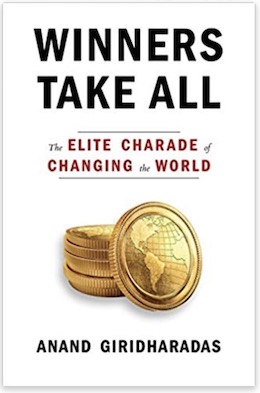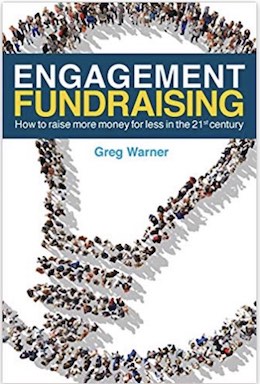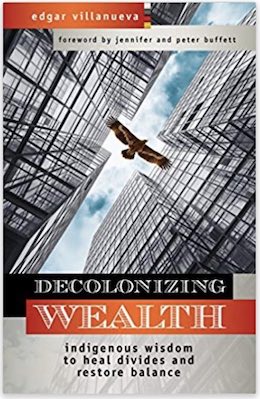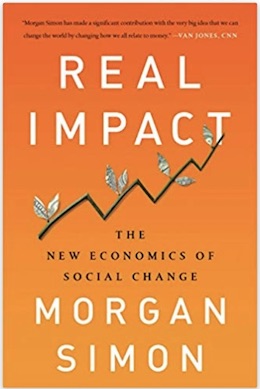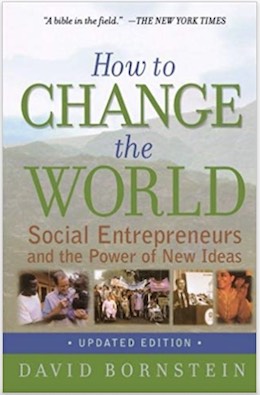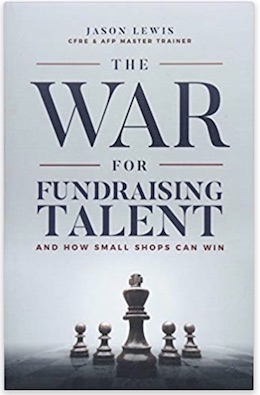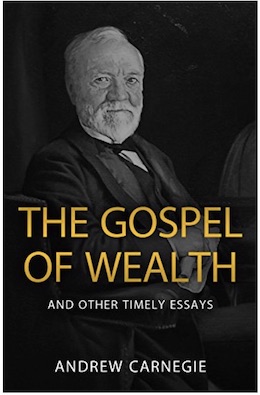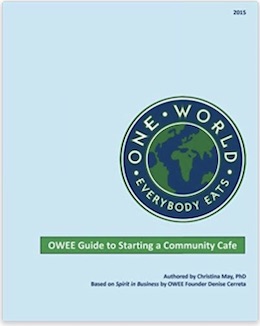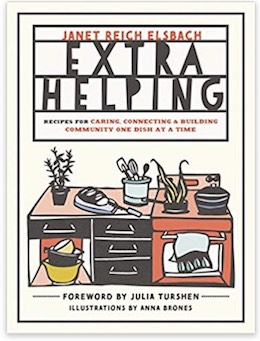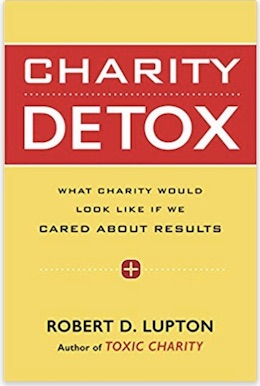Regardless if you are just starting out, or have years of experience, understanding the current trends in fundraising, the current thinking toward philanthropy, and new ways to write communication materials or proposals, among other topics, is critical.
Following are 10 books to read that will expand your horizons, present you with new ideas and ways of doings things and make you a better fundraiser. All you have to do is make the time to read or listen to the audio versions! (Note: We are affiliated with Amazon and we may receive a small commission from the sale of each book at no additional cost to you.)
Here are 10 fundraising related books to add to your reading list and some probable takeaways:
1. Winners Take All: The Elite Charade of Changing the World
Published in 2018, by Anand Giridharadas
Summary: This book was a New York Times bestseller and one of NPR’s Best Books of 2018. Giridharadas investigates how world elite efforts to ‘change the world’ mostly serve to preserve the status quo.
Takeaways: You might need to question the big funders and the top global donors! When doing your prospect research, always think about why people or institutions are giving to a certain organization or cause.
2. Engagement Fundraising: How to raise more money for less in the 21st century
Published in 2018, by Greg Warner
Summary: Engagement fundraising takes the perspective of the donor, encouraging nonprofits to help wealthy individuals find meaning in their lives through giving.
Takeaways: Donor perspectives are shifting dramatically, especially as younger generations have more money and are giving more. Engagement fundraising is a good way to secure younger donors concerned about being part of charity and “doing good.”
3. Decolonizing Wealth: Indigenous Wisdom to Heal Divides and Restore Balance
Published in 2018, by Edgar Villanueva
Summary: (From the publisher) “Decolonizing Wealth is a provocative analysis of the dysfunctional colonial dynamics at play in philanthropy and finance. Award-winning philanthropy executive Edgar Villanueva draws from the traditions from the Native way to prescribe the medicine for restoring balance and healing our divides.”
Takeaways: You might think about other models than the traditional philanthropic dynamic. You may actually be contributing to societal injustice through participating.
4. Real Impact: The New Economics of Social Change
Published in 2017, by Morgan Simon
Summary: This book is both an explanation of what impact investing is and how the model can best be applied (from the perspective of an investor) to support social change.
Takeaways: Impact investing is one of the hottest buzzwords in philanthropy. Reading about it from an investor’s perspective can especially help you understand if your organization would be eligible for funding, and from whom.
Also read: 5 Must Read Books For Fundraisers.
5. How to Change the World: Social Entrepreneurs and the Power of New Ideas
Updated Edition, 2019, by David Bornstein
Summary: (From the publisher) “The book is an In Search of Excellence for social initiatives, intertwining personal stories, anecdotes, and analysis. Readers will discover how one person can make an astonishing difference in the world.
The case studies in the book include Jody Williams, who won the Nobel Peace Prize for the international campaign against landmines she ran by e-mail from her Vermont home; Roberto Baggio, a 31-year old Brazilian who has established eighty computer schools in the slums of Brazil; and Diana Propper, who has used investment banking techniques to make American corporations responsive to environmental dangers.
The paperback edition will offer a new foreword by the author that shows how the concept of social entrepreneurship has expanded and unfolded over the last few years, including the Gates-Buffetts charitable partnership, the rise of Google, and the increased mainstream coverage of the subject. The book will also update the stories of individual social entrepreneurs that appeared in the cloth edition.”
Takeaways: This is an deal read for anyone thinking about forming a nonprofit or changing their way of doing business to benefit the world. It is also a seminal text for inspiration, for nonprofit leaders and entrepreneurs alike.
6. The War for Fundraising Talent: And How Small Shops Can Win
Published 2018, by Jason Lewis
Summary: Professional fundraising has its woes, which are outlined in this book that outlines how focusing on fundraising talent and improving fundraising talent from within can be the best means for nonprofits, especially small ones, to compete. (From the publisher) “After years, if not decades, of obsessively accumulating new donors, most organizations have more than enough donors to keep them busy for quite some time. Those willing to part ways with this time-worn paradigm will discover how to retain more of the talent they already have and empower their new recruits with an environment where fundraising professionals can achieve mastery and find meaning in their work.”
Takeaways: This book outlines how it is likely more important to spend time retaining donors than collecting new ones, especially for smaller organizations. A great read as well for fundraising professionals that want to know how to make themselves more competitive!
7. The Gospel of Wealth and Other Timely Essays
Kindle Edition, by Andrew Carnegie
Summary: Andrew Carnegie was one of the richest people to have ever lived, selling his steel company in Pennsylvania for over $300 million at the turn of the Twentieth Century. He was also one of the first philanthropists, writing seminal essays about the importance of industrial tycoons to give back. He gave away 90% of his wealth by the time he died in 1919.
Takeaways: The spirit of giving back was borne from capitalism. It was borne from America. As much as understanding the newer philosophies that fundraising is perpetuating inequity, it is just as important to understand where the big foundations and giving institutions came from.
8. One World Everybody Eats Guide to Starting a Community Cafe
Paperback version published 2016, by Christina May, Ph.D.
Summary: (From the Publisher) “Through pay-what-you-can community cafes, One World Everybody Eats strives to end hunger, reduce food waste, and build inclusive and diverse communities. In 2015, there were over 60 cafes operating in 24 states and the Netherlands and Australia. Over 50 more cafes are being planned in 39 states and six countries. Community cafes have served more than 1.3 million meals, 30% to those who might not otherwise be able to afford to eat in a restaurant. The model was developed by Denise Cerreta as a reaction to hunger on a community scale. It allows some people to pay what they can, some people to volunteer for a meal, and some people to pay it forward. This step-by-step guide provides specific information about the particulars of starting and managing a OWEE community cafe. Join the rapidly growing movement and manage a cafe that thrives and allows others to thrive!”
Takeaways: This is one great example of how anyone can change the world, and how we can encourage small scale giving in our communities for the benefit of all.
9. Extra Helping: Recipes for Caring, Connecting, and Building Community One Dish at a Time
Paperback published 2018, by Janet Reich Elsbach (Author), Anna Brones (Illustrator), Julia Turshen (Foreword)
Summary: (From the Publisher) “There is no more essential place to show up for people than on the plate. Extra Helping is for anyone who wants to respond to the challenge of baby announcements, PTO meal chains, and CaringBridge alerts with compassion and creativity; who wants to send something to a niece overcome by finals week or a neighbor who is grieving; and whose limits of time and other resources leave them feeling more confused than inspired. With recipes tailored to meet many of the dietary modifications that illness and recovery (not to mention modern life) often entail, Extra Helping walks you, the helpful friend, through cooking for people who are dealing with illness, recovery, and loss, or celebrating babies, birthdays, and new homes. Personal stories from the front lines of care, shortcuts for the time-strapped, and sidebars full of tips and embellishments round out a collection of over 70 recipes, aiding readers in developing a style of caregiving all their own. Extra Helping frames a philosophy of support, a personal identity of tending, a creative and unique-to-you style of saying “I am here for you”—one delivery at a time.”
Takeaways: This is an uplifting read about how we can connect to others in our community through a simple meal or food dish. Sometimes in our nonprofit or charity work, especially when fundraising, we get disconnected from what really matters. Try making your volunteers, your staff, or your donors a comforting meal to keep in human touch!
10. Charity Detox: What Charity Would Look Like If We Cared About Results
Paperback Published 2016, by Robert D. Lupton
Summary: Lupton’s followup book to his highly popular Toxic Charity, which revealed the truth about modern charity programs aimed at helping the poor. Often, programs designed to help actually create dependency or exacerbate problems. This followup focuses on what charity would look like if we measured it by its ability to alleviate poverty and needs. (From the publisher) “Only by redirecting our strategies and becoming committed to results, he argues, can charity enterprises truly become as transformative as our ideals.”
Takeaways: This is the crux of many funders demand for impact numbers and results reporting when you are filling out grant forms. Just in the past few years, it seems everyone is obsessed with impact. You need to read this and Lupton’s other works to understand where that push is coming from, and how to apply it to your nonprofit’s measurement, evaluation, and reporting.
As Jim Rohn said, “Reading is essential for those who seek to rise above the ordinary.”

